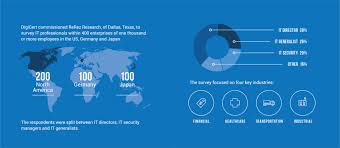
Introduction
Quantum computing is a revolutionary field of technology that leverages the principles of quantum mechanics to perform computations at speeds far beyond traditional computers. Unlike classical computers that process data in binary (0s and 1s), quantum computers use qubits, which can exist in multiple states simultaneously due to the phenomenon of superposition. This capability enables quantum computers to solve complex problems exponentially faster, making them a game-changer in fields such as cryptography, artificial intelligence, and scientific simulations.
Encryption, the process of securing data from unauthorized access, is one of the key areas that will be impacted by quantum computing. While classical encryption methods rely on the difficulty of solving mathematical problems (such as prime factorization), quantum computers have the potential to break these encryption schemes, leading to the need for quantum-resistant cryptography.
How Quantum Computing Affects Encryption

- Breaking Classical Encryption: Traditional encryption methods, such as RSA and ECC (Elliptic Curve Cryptography), rely on the fact that factoring large numbers is computationally difficult for classical computers. However, with Shor’s Algorithm, quantum computers could solve these problems exponentially faster, rendering current encryption methods obsolete.
- Quantum Key Distribution (QKD): To counter the threat posed by quantum computers, scientists are developing quantum-resistant encryption techniques. One of the most promising methods is Quantum Key Distribution (QKD), which uses the principles of quantum mechanics to create secure encryption keys that cannot be intercepted or duplicated without detection. QKD ensures ultra-secure communication channels, particularly for government and financial institutions.
- Post-Quantum Cryptography: Researchers are also working on post-quantum cryptographic algorithms, which are designed to be secure against both classical and quantum attacks. These new encryption methods are being tested for implementation in future cybersecurity systems.

Applications of Quantum Computing in Encryption and Security

- Ultra-Secure Communication: Quantum networks using QKD can provide unbreakable encryption for military, government, and financial communications.
- Secure Cloud Computing: With quantum encryption, data stored in the cloud can be protected from future quantum attacks.
- Blockchain and Cryptocurrency Security: Quantum-resistant encryption is being explored to protect blockchain networks from being compromised by quantum computers.
- Data Privacy in AI and IoT: Quantum cryptographic methods can enhance the security of AI-driven systems and IoT (Internet of Things) devices, ensuring privacy in a connected world.
Challenges and Limitations
- Hardware Development: Quantum computers require highly specialized hardware, such as superconducting circuits and extreme cooling, making them expensive and difficult to build.
- Quantum Decoherence: Qubits are highly sensitive to external disturbances, leading to data loss and computation errors, which scientists are working to mitigate.
- Implementation of Quantum Encryption: While QKD and post-quantum cryptography are promising, transitioning from classical encryption methods will require time, research, and global standardization.
Future of Quantum Computing and Encryption

As quantum computing technology continues to advance, organizations must prepare for the potential impact on cybersecurity. Governments and tech companies are investing in quantum-safe encryption to future-proof digital security against quantum threats. In the coming years, we can expect the integration of hybrid quantum-classical security systems that combine the strengths of both technologies. The race between quantum hackers and quantum security experts will shape the next era of digital protection, ensuring that encryption remains resilient in the face of emerging computational power.
